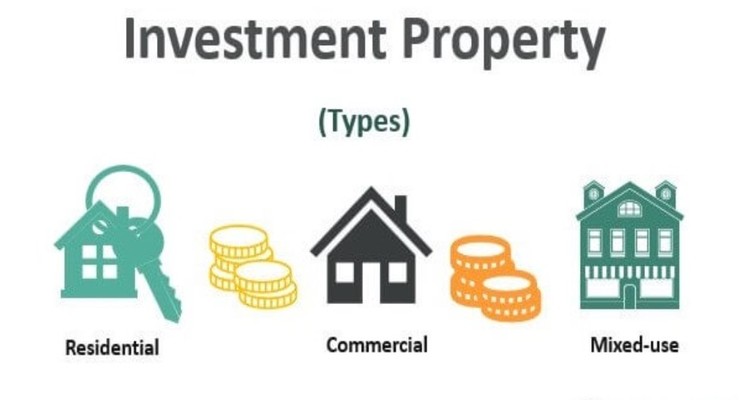Outline of the Article:
- Introduction
- What is Real Estate?
- Importance of Real Estate in the Economy
- Types of Property
- Residential Property
- Commercial Property
- Industrial Property
- Land Property
- How the Property Market Works
- Property Supply and Demand
- Understanding Property Valuation
- Real Estate Market Trends
- Factors That Influence the Real Estate Market
- Economic Factors
- Government Policies
- Interest Rates
- Demographics
- Buying Real Estate
- Steps to Buying a Home
- Tips for First-Time Homebuyers
- Common Mistakes to Avoid When Buying
- Selling Real Estate
- How to Sell a Home
- Pricing Strategies for Selling Property
- The Role of Real Estate Agents in Selling
- Investing in Real Estate
- Benefits of Real Estate Investment
- Different Types of Real Estate Investments
- Risks and Challenges in Real Estate Investment
- Real Estate Financing
- Understanding Mortgages
- Different Types of Home Loans
- Real Estate Investment Financing Options
- Real Estate Laws and Regulations
- Property Ownership Laws
- Zoning Laws
- Real Estate Contract Laws
- The Role of Real Estate Agents
- What Does a Real Estate Agent Do?
- How to Choose the Right Real Estate Agent
- The Importance of Real Estate Agents in Transactions
- Real Estate in the Digital Age
- The Impact of Technology on Real Estate
- Online Real Estate Marketplaces
- Virtual Home Tours and Augmented Reality
- Sustainability and Green Real Estate
- Energy-Efficient Homes
- Sustainable Building Practices
- The Future of Green Real Estate
- Real Estate Investment Trusts (REITs)
- What are REITs?
- How Do REITs Work?
- Advantages of Investing in REITs
- Global Real Estate Trends
- Real Estate Market Trends Worldwide
- Foreign Investment in Real Estate
- Growing Cities and Markets
- Conclusion
- Key Takeaways
- Future of the Real Estate Market
Real Estate In-Depth Guide to Everything You Need to Know
Introduction
When you think about Property, what comes to mind? Homes, properties, buildings, or perhaps investments? Property is more than just a term—it’s a fundamental part of our economy, influencing everything from wealth generation to economic stability. Understanding Property is key to making smart decisions, whether you’re buying your first home, selling a property, or exploring investment opportunities. Let’s dive into the world of real estate, breaking it down into simple, actionable insights. THEDREAMKEYS.
What is Real Estate?
In the most basic sense, Property refers to property consisting of land and the buildings on it, along with its natural resources like crops, minerals, or water. It’s an umbrella term that covers everything from residential homes to office buildings, and even undeveloped land.
Importance of Property in the Economy
Property is a cornerstone of many economies around the world. It represents a significant portion of wealth for both individuals and businesses. It plays a vital role in the economy by providing spaces for living, working, and commerce. The Property market also acts as a barometer for overall economic health, with shifts in Property prices often reflecting broader economic trends.
Types of Real Estate
Real estate can be categorized into four primary types: residential, commercial, industrial, and land.

Residential Property
This is the most common type that most people are familiar with. Residential real estate includes single-family homes, multi-family homes, apartments, and townhouses. It’s the Property market most people enter when purchasing a property for personal use.
Commercial Property
Commercial Property is property used for business purposes. This includes office buildings, shopping centers, hotels, and any property used to generate income. Investors typically buy commercial properties to rent out or resell for a profit.
Industrial Property
Industrial properties are used for manufacturing, storage, and distribution. These include warehouses, factories, and distribution centers. This sector is key to the logistics and supply chain industries.
Land Property
This type refers to vacant land or property that hasn’t been developed. Land can be used for agricultural purposes, future development, or as a long-term investment.
How the Real Estate Market Works
Understanding how the Property market operates is essential for anyone involved in buying, selling, or investing.
Property Supply and Demand
The real estate market is influenced by the basic economic principle of supply and demand. When demand exceeds supply, prices rise, and when supply exceeds demand, prices fall. This fluctuation can occur due to various factors, including population growth, economic conditions, and government policies.
Understanding Property Valuation
Property valuation is a crucial part of the Property market. It determines the market value of a property, often through a comparative market analysis (CMA), which looks at the sale prices of similar properties in the area. Property value is impacted by location, size, condition, and amenities.
Real Estate Market Trends
Property market trends refer to the direction the market is moving—whether it’s a buyer’s or a seller’s market. Market trends can be influenced by factors like economic growth, interest rates, and even social changes, such as shifts in how people work and live.
Factors That Influence the Real Estate Market
Several factors impact the real estate market’s behavior, including:
Economic Factors
A strong economy tends to drive Property growth as people have more income to invest in property. Conversely, during a recession, Property prices may drop due to decreased demand.
Government Policies
Government regulations, such as tax policies or interest rate changes, play a critical role in shaping the market. For example, when interest rates are low, more people may be able to afford homes, driving demand.
Interest Rates
The cost of borrowing money is a significant factor in the real estate market. Low interest rates make mortgages more affordable, encouraging more people to buy homes.
Demographics
Changes in population size, age distribution, and migration patterns can influence the types of properties people seek. For example, younger generations might prefer urban apartments, while older generations might seek suburban homes.
Buying Property
Purchasing real estate can be a complex process, but understanding the steps can help you navigate it smoothly.
Steps to Buying a Home
The process typically involves saving for a down payment, securing financing, house hunting, making an offer, and completing the closing process. It’s essential to work with a Property agent, a lawyer, and other professionals to ensure everything is in order.
Tips for First-Time Homebuyers
As a first-time homebuyer, be sure to get pre-approved for a mortgage, set a realistic budget, and research the neighborhoods you’re interested in. Don’t forget to consider additional costs like property taxes, maintenance, and insurance.
Common Mistakes to Avoid When Buying
Some common mistakes include not getting pre-approved, underestimating ongoing costs, and rushing into a decision without proper due diligence. Taking the time to do your research can save you a lot of stress later on.
Selling Property
If you’re selling property, there are a few key factors to keep in mind.
How to Sell a Home
Start by setting the right price based on a comparative market analysis. You’ll also want to make necessary repairs, stage the home, and market it effectively to attract potential buyers.
Pricing Strategies for Selling Property
Pricing your home correctly is crucial for a quick sale. Too high, and you may scare away buyers; too low, and you might miss out on profit. Your real estate agent can help you determine the right price based on local market conditions.
The Role of Property Agents in Selling
Property agents are experts in the market, helping you to price the property, negotiate offers, and handle all the paperwork involved in the sale.
Investing in Property
Property offers many opportunities for investors.
Benefits of Property Investment
Property investment offers stable cash flow, potential tax benefits, and long-term appreciation. It’s a tangible asset that can be leveraged for future growth.
Different Types of Property Investments
You can invest in residential properties, commercial properties, or even real estate investment trusts (REITs). Each type has its own set of advantages and risks.
Risks and Challenges in Property Investment
While Property can be profitable, it also comes with risks, such as market volatility, property maintenance, and the potential for vacancies or damage.
Property Financing
Understanding how to finance your property purchase is essential.
Understanding Mortgages
A mortgage is a loan specifically used to purchase Property. It’s important to understand the different types of mortgages and interest rates available.
Different Types of Home Loans
From fixed-rate loans to adjustable-rate mortgages, there are various loan options available. It’s vital to choose the right type of loan based on your financial situation and long-term goals.
Property Investment Financing Options
Investors may also explore various financing options, such as private loans, hard money loans, or even partnerships with other investors.
Property Laws and Regulations
Property is governed by a wide range of laws.
Property Ownership Laws
These laws determine who can own property and how ownership is transferred. They also include guidelines on property rights and the responsibilities of property owners.
Zoning Laws
Zoning laws dictate how land can be used. For example, residential, commercial, and industrial areas are typically zoned separately to prevent conflicts.
Property Contract Laws
Property contracts outline the terms and conditions of buying, selling, or renting property. It’s essential to understand these contracts to protect your interests.
The Role of Property Agents
A Property agent plays a pivotal role in buying, selling, or renting property.
What Does a Property Agent Do?
They help you navigate the market, handle negotiations, and guide you through the paperwork and legal aspects of real estate transactions.
How to Choose the Property Agent
Choose someone with experience, a solid reputation, and expertise in the specific area you’re interested in. Your agent should be someone you trust.
The Importance of Property Agents in Transactions
Property agents provide crucial insight and help you avoid mistakes that could be costly down the line.
Property in the Digital Age
Technology is transforming the Property landscape.
The Impact of Technology on Property
From virtual home tours to automated property valuations, technology has made it easier to buy, sell, and invest in Property.
Online Property Marketplaces
Websites like Zillow, Realtor.com, and others make it easy for buyers to search listings, view property details, and even schedule tours.
Virtual Home Tours and Augmented Reality
These technologies allow potential buyers to explore homes from the comfort of their own home, making the process faster and more convenient.
Sustainability and Green Property
Sustainable building practices are gaining popularity.
Energy-Efficient Homes
Homes that utilize energy-efficient technologies reduce their environmental impact and help owners save money on utility bills.
Sustainable Building Practices
Green building materials, solar power, and eco-friendly designs are becoming the norm in new Property developments.
The Future of Green Property
As awareness of environmental issues grows, demand for sustainable Property is expected to increase, shaping the future of the market.
Property Investment Trusts (REITs)
If you’re looking to invest in Property without buying physical property, REITs may be a good option.
What are REITs?
REITs are companies that own and operate income-producing real estate. They offer investors the opportunity to invest in large-scale Property portfolios.
How Do REITs Work?
REITs pool money from investors to buy, manage, and sell properties. Investors earn returns through dividends and appreciation in the value of the properties.
Advantages of Investing in REITs
REITs provide liquidity, diversification, and the ability to invest in large-scale Property projects without needing a large amount of capital.
Global Property Trends
Property markets around the world are constantly evolving.
Property Market Trends Worldwide
Global economic factors, such as the rise of remote work, are impacting Property markets in both urban and rural areas.
Foreign Investment in Property
Many countries are seeing increased foreign investment in Property, with international buyers seeking properties in emerging markets.
Growing Cities and Markets
Some cities are rapidly growing due to increased demand for housing, while others are declining due to economic or social changes.
Conclusion
Property is a dynamic, multifaceted industry that impacts nearly every aspect of our lives. From buying a home to investing in commercial properties, the opportunities are vast, and the potential rewards are significant. Whether you’re just starting or are a seasoned investor, understanding the nuances of the Property market is crucial to making informed decisions.
FAQs
1. What is the best type of real estate to invest in?
The best type of real estate depends on your financial goals and risk tolerance. Residential, commercial, and industrial properties each have their own set of advantages and challenges.
2. How do I get started in real estate investing?
Start by educating yourself, setting a budget, and deciding on a strategy, whether it’s buying rental properties or investing in REITs.
3. Can I buy real estate with no money down?
While it’s possible to buy real estate with little to no money down, it typically involves special financing options, such as government loans or partnerships.
4. What is a Property agent’s commission?
Property agent commissions typically range from 5% to 6% of the sale price, though this can vary depending on the market and the specifics of the transaction.
5. How do I know when to sell my property?
Look for signs that the market is favorable, such as rising property values or low inventory. It’s also important to assess your own financial situation and goals.

